Book Review: The House of Mondavi
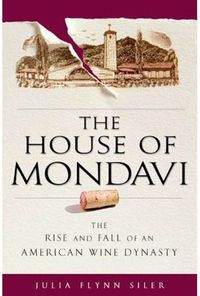 By Evan Dawson, Finger Lakes Correspondent
By Evan Dawson, Finger Lakes Correspondent
The other day I had a conversation with a friend and we tried to answer this question: If a winemaker can truly say that he or she focuses on quality, and carefully tends the grapes and makes the wine, how many cases (in terms of production) is realistic? Five thousand annually? Seven thousand? Ten thousand? Twenty? We went back and forth, as there isn't a concrete answer. But I can say without hesitation that 1.2 million cases of wine was not in the ballpark of "quality."
All of which is to say, reading the life story of the Mondavi family is like reading about a sect of aliens making wine on Saturn (which, if you listen to Michael Mondavi, might happen sooner than later at his family's urging). As a Finger Lakes wine writer, it is hard to imagine one operation making millions of cases of wine each year, and it is ludicrous to hear the Mondavis talk about making millions of cases of wine while still focusing on quality. But such is the story of an American wine dynasty in Julia Flynn Siler's "The House of Mondavi" (Gotham Books, New York).
At nearly 400 pages, the book reads surprisingly quickly thanks to Siler's deft handling of a wide range of subjects. She captures the drama of a self-destructive family, and she uses her skills as a Wall Street Journal reporter to convert banal financial details into a riveting plot. While occasionally lacking in her prose, Siler delivers the necessary pace to keep the reader hungry for the next plot turn. And there are a myriad of twists and turns, as the Mondavi family takes the brakes off their avarice-laced wine freight train.
The forced sale of Mondavi to Finger Lakes-based Constellation Brands is instructive. Siler writes that before acquiring Mondavi, Constellation was known for making "gutter wines" and used the sale to raise their profile in the fine wine business. Then, immediately after the sale goes through, we learn (or perhaps I should say our suspicions are confirmed) that Constellation immediately cuts staff and makes decisions aimed at improving the bottom line at the assumed expense of quality. Fine wine, indeed.
Given Siler's description of Constellation, consumers of New York state wines should be relieved that Constellation has declined to pursue the best producers in the local industry. And, given production volumes, why would they?
My biggest complaint is that Siler fails to capture the true desires of each Mondavi family member, with the exception of Timothy, who was the only one fighting for smaller production and higher quality. We're left to assume that Robert and Michael loved the venal thrill of global wine dominance, but we're never allowed to find out if they truly love wine. I kept waiting to hear Michael explain what kinds of wine inspired him, what individual wine experiences stayed with him. Perhaps there is not much to say in this regard; Siler portrays Michael as a narcissistic businessman who eschews quality for dollars, and I just wonder if he were always that way.
Cheers to Julia Flynn Siler for a thorough and enjoyable read. And cheers to our small producers who can say with straight faces that quality remains a driving force.



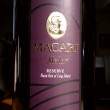
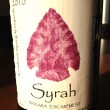

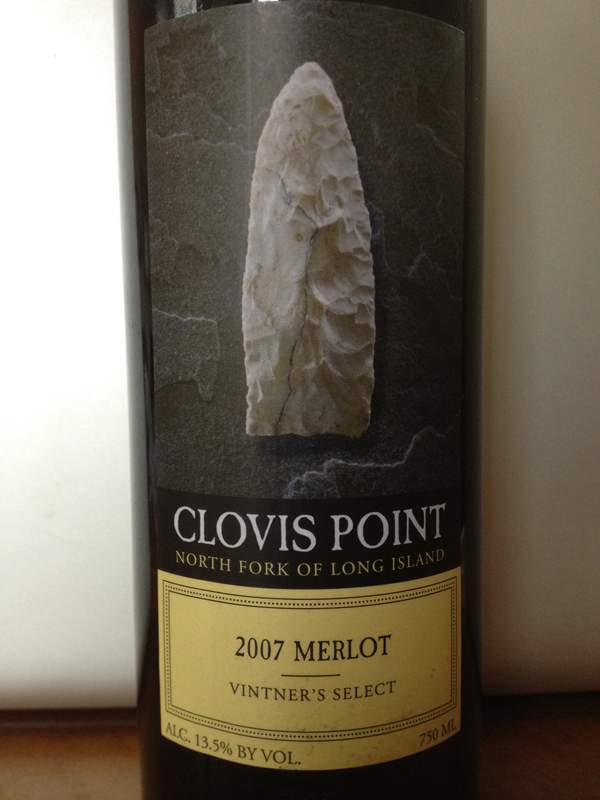
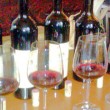




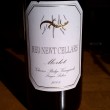


Thanks for the writeup, I’ve been meaning to check this book out for a long time.
It’s amazing how disconnected I feel from the Mondavi’s inner-thoughts considering how public a life Robert had.
Dude,
Siler is clearly a skilled researcher, and you’ll learn more about the family than you thought you could. And for a family that enjoyed such remarkable financial success and fame, it’s amazing how truly unhappy they all were.
I’ve read a lot of criticism about Robert over the years, mostly related to the quality he preached vs. the volume he pumped out of the Mondavi winery.
I will admit that I haven’t read this book so I don’t know what their take on Robert is, but I hope it is somewhat positive. He was a huge pioneer for the US wine industry and huge promoter of US wine around the world; calling him an embassador would be an understatement.
I think some nice insight (and some great reader comments) about Mondavi and his importance for US wine can be found in 2 of Eric Asmov’s blogs right after Robert’s death. If you read them, make sure to read the comments, too.
http://thepour.blogs.nytimes.com/2008/05/16/robert-mondavi-dies/
http://thepour.blogs.nytimes.com/2008/05/23/krug-on-mondavi/
Dave -
Thanks for the links. Mondavi is undoubtedly deserving of his reputation as an ambassador of wine. He is not, in my opinion, deserving of an elevated status as a maker of fine wines. He chose to make high-volume wines, and in doing so he built a massive empire. He’s more than entitled to doing so — I’m certainly not opposed to capitalism! He just simply was not a great wine producer.
The irony is that he thought he was a producer of fine wines early on; he figured he could champion the idea of high-quality wines and build a business. And he was right. But the idea always overcame the reality at Mondavi, whether it was the explosion in production in the 1970s that made quality suffer, or the hasty production of wine in Chile, or the plan to turn Disney tourists into wine drinkers (which was an instant flop).
He also allowed his business empire to destroy his family relationships, from his relationship with his mother and brother to his relationship with his sons. Siler describes an intensely unhappy family that was always at war.
So, yes, Robert Mondavi was an ambassador of wine. And his legacy of mediocre wine might act as a cautionary tale for those who want the best of all things.
Maybe I’m reading too much into the quote that Krug recollected from Mondavi: “I believe we can say that, in only a few years, we have been able to make great quality wines. But they still lack subtlety, and this will take generations to achieve.’’
When I read that I get the sense that Mondavi was talking about wine in the US in general, not his alone. I think he loved great wine and wanted everyone in the US to make great wine, but was sad that he’d never be around long enough to see that day. I’m assuming his reference to taking “generations” to achieve great, subtle wines was both related to the amount of time it would take to really master wine in the US (ie: the right grapes for the right sites, etc) in addition to the time it would take for the American palette to appreciate such bottlings. After all, wine production (and wine consumption) in the US is still in its infancy compared to Europe.
I think he was a great business man and built a huge, profitable empire selling a lot of average, every-day wine. But I also believe he used some of his resources to make truly great wines in smaller production that he was really proud of. I’m talking about some of the older reserve cabs and SLD cabs from years past which were more refined, more complex, and built for aging.
I’m not sure if my recollection of Mondavi is real or if it is wishfully imagined. I hope the former, and I hope time will yield him a very positive outlook in the history of wine.
I think Dave is correct - Mondavi did make smaller production wines he could be proud of. But his real genius was in marketing. Thanks to him, wine is no longer a cult beverage, and the widening of the wine “audience” is good for everyone, especially “quality” winemakers. Mondavi understood the importance of education in wine. Only those who have had the opportunity to learn and swirl are going to spring for $30-$50 a bottle.
I loved the book, and as a new Napa neighbor, I’m told it’s pretty accurate. My take on the book was that Robert Mondavi was a generous and philanthropic man. Perhaps to a fault. We will miss him. AM
Dave -
As someone who feels a strong sense of family, I concede that perhaps I am a harsher judge of Robert Mondavi and his motivations. But the fact remains that he participated in the fissure and destruction of just about every major familial relationship he had, and he never sought to rectify it until his final years. I try to imagine having the wonderful opportunities to share a family business like that with my father or brothers or sons, and I simply can’t believe that Robert allowed his family to fall apart the way it did. He had one son, Timothy, who seemed deeply interested in focusing on smaller production wines, but Robert publicly belittled Timothy and marginalized his role. His other son, Michael, got his way more often and yet would not even attend his father’s most important life events. It’s amazing. We are all flawed human beings, but Robert was literally at war with his family his entire life.
Regarding his smaller production wines, in a sense it’s fair to think of his brand as many different wines under one name. But I’m a strong advocate for more consumer information, not less, and I don’t think Mr. Mondavi did nearly enough to bring clarity to what was in those bottles. In fact, his joint ventures with France and Chile led many to believe those were special wines when, in reality, they were more the product of marketing than anything else — and the producers were in constant strife behind the scenes. And don’t get me started on the “Private Selection” label, which might be the most misleading label on the American wine market.
I was quite moved to read about his philanthropy later in life. I am equally moved by his wife’s generous ways. And I’m very curious to taste Continuum, if I decide to spend the necessary cash for a bottle!
yea i agree, at 1.2 mill cases (roughly 2,880,000g) is way beyond the scope of an individual or a family to truly make quality wine. That said, if the task is well delegated to skilled workers it could be done.
The folk standard is that two people can manage about 15 acres of vineyard by hand. Cornell’s liturature states that 50 acres is managable with mechanical assistance (eg machine harvesting ect). I guess technically that dosnt answer your initial question, which is how much capacity can a winery deal with while maintaining high quality standards.